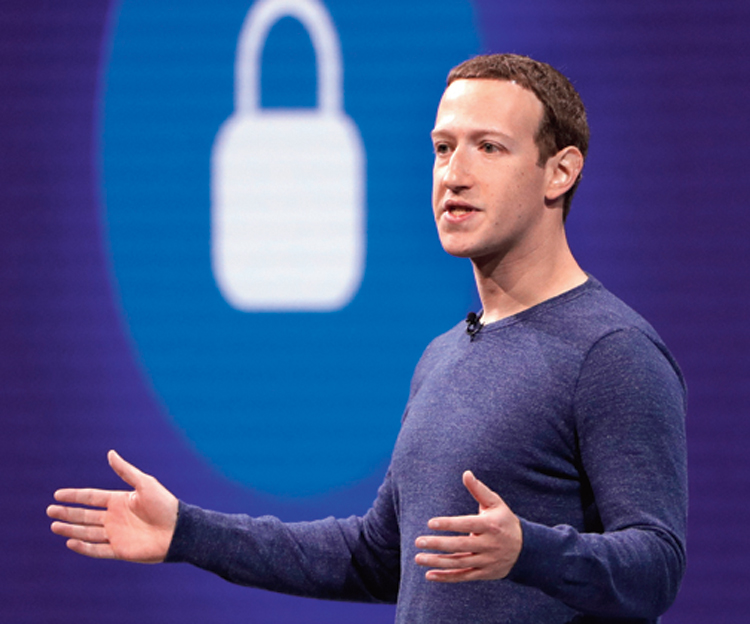The Federal Trade Commission has approved a fine of roughly $5 billion against Facebook for mishandling users’ personal information, according to three people briefed on the vote, in what would be a landmark settlement that signals a newly aggressive stance by regulators toward the country’s most powerful technology companies.
The much-anticipated settlement still needs final approval in the coming weeks from the justice department, which rarely rejects settlements reached by the agency. It would be the biggest fine by far levied by the federal government against a technology company, easily eclipsing the $22 million imposed on Google in 2012.
The size of the penalty underscored the rising frustration among Washington officials with how Silicon Valley giants collect, store and use people’s information.
It would also represent one of the most aggressive regulatory actions by the Trump administration, and a sign of the government’s willingness to punish one of the country’s biggest and most powerful companies. President Trump has dialled back regulations in many industries, but the Facebook settlement sets a new bar for privacy enforcement by US officials, who have brought few cases against large technology companies.
In addition to the fine, Facebook agreed to more comprehensive oversight of how it handles user data, according to the people. But none of the conditions in the settlement will impose strict limitations on Facebook’s ability to collect and share data with third parties. And that decision appeared to help split the five-member commission. The
3-to-2 vote, taken in secret this week, drew the dissent of the two Democrats on the commission because they sought stricter limits on the company, the people said.
Until now, the biggest fines and restrictions against tech companies have come from Europe. Officials there have imposed several charges of anti-trust and privacy laws against Amazon, Apple, Facebook and Google. Last year, the EU fined Google $5.1 billion for abusing its large market share in the mobile phone industry. More recently, numerous officials and lawmakers around the world have rushed to regulate Facebook.
The FTC’s investigation was set off by The New York Times and The Observer of London, which uncovered that the social network allowed Cambridge Analytica, a British consulting firm to the Trump campaign, to harvest personal information of its users. The firm used the data to build political profiles about individuals without the consent of Facebook users.
The agency found that Facebook’s handling of user data violated a 2011 privacy settlement with the FTC. That earlier settlement, which came after the company was accused of deceiving people about how it handled their data, required the company to revamp its privacy practices.
American regulators and lawmakers of both parties have also taken a more combative stance toward the tech giants in recent weeks.
Congress started an antitrust investigation into how the biggest tech companies have harmed consumers and impeded competition. The justice department and the FTC divvied up responsibility for potential antitrust investigations into several of the companies.
On Thursday, Trump took shots at Facebook and other social media companies, accusing them of being biased against conservatives.
He also took to Twitter to criticise Facebook’s latest initiative into cryptocurrency — a project called Libra, which is still in its early stages — saying that Facebook’s proposed coin would never usurp the dollar. David Marcus, the Facebook executive in charge of Libra, is scheduled to appear before Congress next week to defend the initiative.
The commissioners agreed many months ago to pursue a substantial penalty against the company, in an effort to show the agency’s teeth, according to several people briefed on the discussions. But they were split on the size and scope of the tech company’s punishment. One of the most contentious issues was whether Mark Zuckerberg, Facebook’s chief executive, should be held personally liable for any violation of the 2011 agreement.
The internal debate mirrored the larger debate in Washington over just how far the government should go to regulate Big Tech.











